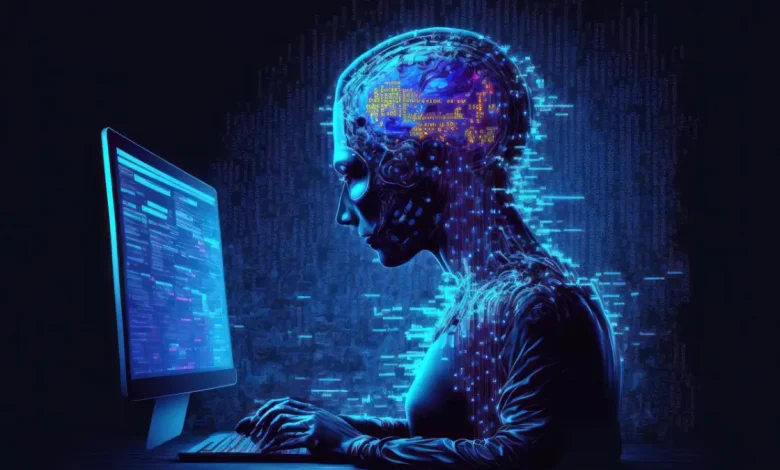AI and Ethical Hiring: Can Machines Reduce Bias in Recruitment?

Recruitment bias remains a major challenge for organizations worldwide. As companies strive for fairer hiring practices, artificial intelligence (AI) emerges as a powerful tool to help reduce bias and improve diversity. But can AI truly make recruitment more ethical? This article explores how AI impacts hiring, its benefits, risks, and best practices for ethical AI use in recruitment in 2025.
ALSO READ: Turnitin AI Detector Accuracy Rate: Real Stats and Case Studies
How AI Is Changing Recruitment
AI technologies now automate many recruitment tasks, including resume screening, candidate matching, and interview scheduling. By focusing on objective data, AI can help remove unconscious bias that often influences human decisions. For example, a Harvard Business Review study in late 2024 found that AI-assisted shortlisting increased gender and ethnic diversity in interview pools by 21% when strict de-biasing protocols were applied1. Furthermore, by 2025, AI-powered hiring tools are expected to reduce recruitment bias by 50% and improve workforce diversity by 35%.
Benefits of AI in Ethical Hiring
Reducing Unconscious Bias
Human recruiters may unknowingly favor candidates based on gender, ethnicity, or background. AI can focus solely on skills, experience, and qualifications, helping to level the playing field. When trained on unbiased data, AI systems screen candidates more fairly, increasing diversity and inclusion.
Enhancing Candidate Experience
AI-powered chatbots and virtual assistants provide candidates with real-time responses, improving communication and engagement. According to Phenom’s 2025 report, organizations using conversational AI see a 3x increase in application completion rates and a 25% rise in candidate satisfaction. This transparency and responsiveness foster a more positive hiring experience.
Improving Hiring Efficiency and Accuracy
AI speeds up resume screening and interview analysis, reducing time-to-hire by up to 50% and increasing hiring accuracy by 40%. Predictive analytics also help identify candidates who best fit the role and company culture, leading to better long-term hires.
Challenges and Risks of AI in Recruitment
Algorithmic Bias and Data Quality
AI reflects the data it learns from. If historical hiring data contains biases, AI can unintentionally perpetuate discrimination. For instance, Amazon discontinued an AI recruiting tool in 2018 after it showed bias against female applicants. Therefore, organizations must carefully audit training data and AI outputs to detect and correct biases.
Lack of Transparency and Accountability
Complex AI models can be difficult to interpret, making it challenging to explain hiring decisions to candidates or regulators. This opacity raises ethical concerns about fairness and accountability in recruitment.
Privacy and Ethical Concerns
Using AI in hiring requires handling sensitive candidate data. Companies must ensure compliance with data protection laws and maintain transparency about AI’s role in the recruitment process.
Best Practices for Ethical AI Use in Hiring
Regular Bias Audits
Organizations should routinely test AI systems for bias and update them based on findings. This helps prevent the reinforcement of unfair patterns and ensures AI remains a fair tool.
Transparent Communication
Candidates deserve to know when AI tools are involved in their application process. Clear communication builds trust and allows candidates to understand how decisions are made.
Human Oversight
While AI can support decision-making, human judgment remains essential, especially for final hiring decisions or assessing cultural fit. Combining AI insights with human expertise leads to more balanced outcomes.
Embedding Diversity, Equity, and Inclusion (DEI)
AI systems should be designed and monitored with DEI principles in mind. This includes using diverse training data and aligning AI goals with organizational diversity targets.
CHECK OUT: How AI Tools Can Help You Land Your Dream Job
The Future of Ethical AI in Recruitment
AI adoption in recruitment is growing rapidly, with 72% of HR professionals using AI tools in 2025. Trust in AI’s ability to reduce bias is also increasing, with 57% of workers believing AI can make hiring fairer. As AI technology advances, companies will rely more on predictive analytics and skill assessments to identify top talent while minimizing bias.
However, organizations must remain vigilant about ethical challenges. By combining AI innovation with responsible practices, businesses can create recruitment processes that are efficient, fair, and inclusive.
AI Can Enhance Diversity
AI offers promising solutions to reduce bias and improve fairness in recruitment. When implemented thoughtfully, AI can enhance diversity, boost candidate experience, and increase hiring accuracy. Yet, ethical concerns like algorithmic bias, transparency, and privacy require ongoing attention. For AI to become a true ally in ethical hiring, companies must commit to regular audits, clear communication, and human oversight. In 2025, AI stands as a powerful tool but only if used responsibly to build fairer workplaces.
